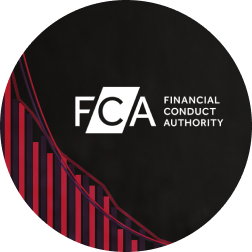The Financial Conduct Authority (FCA) is a statutory body that strives to maintain the UK’s financial system’s integrity and safeguard the interests of consumers and investors alike. As a UK trader or investor, understanding everything about this financial regulator is crucial in trading securely. For this reason, we have prepared this ultimate guide that explores what FCA means, its functions, FCA history, and its impact on the financial industry in the UK.
What is the Financial Conduct Authority (FCA)?

While trading or investing with an FCA firm is crucial, you must be well-versed in the question, “What is the FCA?” Well, the FCA is the primary regulatory body responsible for the financial services industry in the United Kingdom. It was established in April 2013, taking over from the Financial Services Authority (FSA), and is funded by the financial services industry through a levy system.
So, what does the FCA stand for? The FCA stands for the Financial Conduct Authority, which is an independent public body that reports to the UK’s Treasury and Parliament. Some financial firms the FCA regulates include banks, insurance companies, investment firms, financial brokers, and consumer credit providers. Its regulatory remit covers various financial products and services, including mortgages, pensions, and investment funds.
Financial Conduct Authority Responsibilities
The FCA’s main objective is to protect consumers, maintain market stability, and promote healthy competition within the financial services industry. To achieve these goals, it has to practice specific responsibilities, including:
- Supervision: One of the Financial Conduct Authority responsibilities includes monitoring the activities of financial firms to ensure they comply with regulations and standards of conduct. This includes monitoring firms’ finances, governance, and risk management practices.
- Authorisation: The FCA is responsible for authorising and regulating financial firms operating in the UK, ensuring they meet the necessary standards of competence, financial stability, and integrity.
- Enforcement: Another crucial FCA responsibility is to act against firms and individuals who breach financial regulations or standards of conduct. This can include imposing fines, revoking licenses, or pursuing legal action.
- Market oversight: The FCA monitors financial markets and works to prevent market abuse, such as insider trading or market manipulation.
- Consumer protection: The FCA works to protect consumers by ensuring they are treated fairly and have access to clear and transparent financial products and services. It also provides guidance and support to help consumers make informed financial decisions.
Understanding the FCA in the UK
To ensure the safety and legitimacy of your trading endeavours in the UK, it is paramount that you verify the membership of your chosen trading platform with the FCA. This can be easily achieved by locating the FCA reference number at the footer of the platform’s website. Then, confirm a platform’s official registration status using this number at the FCA register and ensure its details have been consistently updated within the past year.
With so many unregulated trading platforms in the UK, it is essential to exercise caution for an exciting trading experience and to safeguard your funds.
The FCA operations were set up under the Financial Services and Markets Act 2000, which was later amended by the Financial Services Act 2012. The 2012 act made significant changes to ensure the UK’s financial sector was effectively managed and risks contained, especially after the 2008 to 2009 financial crisis.
Overall, the FCA is objected to protecting consumers, enhancing integrity in the UK’s financial system, and ensuring financial institutions practice healthy competition to benefit consumers. It also has various powers and functions are explained below.
Power
The FCA has significant powers to regulate financial firms and enforce compliance with regulatory standards. It can take enforcement action against firms or individuals that breach regulations, including imposing fines, revoking licenсes, and pursuing legal action. The authority also has powers to authorise and supervise financial firms operating in the UK, ensuring they meet necessary standards of competence, financial stability, and integrity.
Remember, the FCA is an independent body, meaning it doesn’t receive any funding from the UK government. For this reason, it has the power to raise fees by imposing charges on the financial firms it regulates to sustain its operations.
Functions
As mentioned earlier, the Financial Conduct Authority operates under the UK’s treasury and parliament. Its role is defined by the Financial Services and Markets Act 2000 (FSMA). So far, the authority regulates the conduct of over 50,000 firms in the UK, thus ensuring that the financial market remains competitive, honest, and fair. It also supervises over 48,000 financial firms and has set specific standards for over 18,000 businesses.
Financing
When it comes to financing, the FCA is funded by a combination of fees paid by regulated financial firms and a levy on the financial services industry. The fees the firms pay are based on their size and the level of risk they pose to the financial system. The levy is used to fund the FCA’s enforcement activities, market oversight, and consumer protection functions.
Benefits of FCA Regulation

While some may view financial activities’ regulations as a burden, FCA regulation has several benefits for both consumers and the financial industry. These include:
- Improved consumer protection – The FCA’s primary objective is to protect consumers by ensuring financial firms operate fairly and transparently. Its regulatory oversight helps prevent financial scams and other fraudulent activities that can harm consumers. In addition, the FCA’s rules and regulations ensure that consumers get to enjoy clear and transparent financial products and services.
- Enhanced market stability – The FCA’s regulatory oversight helps to maintain market stability by promoting responsible business practices and reducing the risk of financial crises. This includes monitoring and addressing potential risks to the financial system and taking action against firms that engage in reckless or unethical behaviour.
- Increased competition – The FCA works to promote fair competition in the financial services industry, which can benefit consumers by increasing choice and driving down costs. This includes removing barriers to entry for new firms, promoting innovation, and encouraging firms to compete based on quality and value.
- Improved standards of conduct – The FCA’s rules and regulations set high standards for financial firms and individuals. This helps promote professionalism, integrity, and accountability in the financial services industry, which can benefit both consumers and the industry.
- Increased investor confidence – The FCA’s regulatory oversight helps to boost investor confidence in the financial services industry. This can lead to increased investment, economic growth, and improved access to finance for businesses and individuals.
How Do You Know if a Broker is FCA Regulated?
If you are looking to invest in the financial markets, choosing a reputable broker regulated by a world-renowned authority is essential. As the UK financial regulator, the Financial Conduct Authority is responsible for overseeing the region’s financial services industry, including brokers. Here are some ways to check if a broker is FCA regulated broker.
- Check the FCA Register: The FCA maintains a public register of all UK firms and individuals authorised to provide financial services. You can search the record online to check if a broker is FCA regulated. The register will show the firm’s name, registration number, and the activities it is authorised to carry out.
- Look for FCA logos and disclosures: Brokers overseen by the FCA are required to display the FCA logo on their website and marketing materials. They may also include disclosures that indicate they are authorised and regulated by the FCA. Look for these logos and disclosures when researching brokers.
- Contact the FCA: If you are still unsure if a broker is FCA regulated, you can contact the FCA directly to confirm. The FCA has a consumer helpline you can call or reach out via their online contact form.
- Check for warning lists: The FCA maintains a list of firms and individuals that are not authorised to provide financial services in the UK. Check this list to ensure that the broker you are considering is not on it.
Note that just because a broker is FCA-regulated does not guarantee that they are trustworthy or that you will make money. As a trader or investor, always conduct thorough market research and due diligence before investing with any broker. However, choosing an FCA-regulated broker can provide an added layer of protection and assurance that the firm operates according to high standards of conduct and is subject to regulatory oversight.
FAQs
FCA-regulated brokers must operate according to high standards of conduct, including treating their clients fairly and transparently. The brokers also ensure your funds are protected by securing them in segregated accounts only accessible to you.
To acquire FCA regulation, a financial institution must apply for authorisation from the authority. The application process involves submitting detailed information about the firm’s business operations, management structure, compliance procedures, and financial resources. The FCA will review the application and may request additional information or clarification before granting authorisation.
Yes. Banks in the UK are regulated by the FCA and the Prudential Regulation Authority (PRA). The FCA is responsible for ensuring that consumers are highly protected by benefiting from banks’ fair and transparent services. Both regulatory bodies work together to oversee the banking sector and ensure that it acts in the best interests of all stakeholders.
The FCA is a regulatory body that operates independently of the region’s government in the UK. It is not responsible for regulating financial services firms in other countries, meaning you must research the regulatory framework in your jurisdiction to ensure you are investing with a reputable, regulated broker.
Conclusion
FCA regulation can provide added protection and assurance for UK traders and investors, as regulated firms are subject to regulatory oversight and may benefit from the Financial Services Compensation Scheme (FSCS) services if the firms fail. By understanding the role of the FCA and checking if a broker is FCA-regulated, you can easily make informed decisions and mitigate potential risks when investing in the financial markets.



